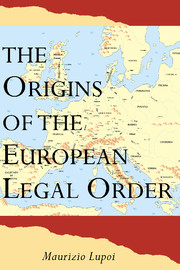Book contents
- Frontmatter
- Contents
- List of abbreviations
- 1 The early Middle Ages: a comparative approach
- 2 A historical and institutional profile of the Roman empire in the fourth and fifth centuries
- 3 Excursus I: ‘Barbarians’
- 4 Historical and institutional profiles of the ‘new dominations’
- 5 Excursus II : The days of the week
- 6 Excursus III: Anglo-Saxon charters
- 7 Consensus by assembly
- 8 Excursus IV: Authority and consensus in judicial decisions
- 9 Public allegiance
- 10 Excursus V: The Anglo-Saxon writ
- 11 Private allegiance
- 12 Open legal systems
- 13 Excursus VI: Textual ‘coincidences’ in documentary forms
- Chronology of popes and sovereigns
- Appendix of sources
- Bibliography
- Index
5 - Excursus II : The days of the week
Published online by Cambridge University Press: 04 February 2010
- Frontmatter
- Contents
- List of abbreviations
- 1 The early Middle Ages: a comparative approach
- 2 A historical and institutional profile of the Roman empire in the fourth and fifth centuries
- 3 Excursus I: ‘Barbarians’
- 4 Historical and institutional profiles of the ‘new dominations’
- 5 Excursus II : The days of the week
- 6 Excursus III: Anglo-Saxon charters
- 7 Consensus by assembly
- 8 Excursus IV: Authority and consensus in judicial decisions
- 9 Public allegiance
- 10 Excursus V: The Anglo-Saxon writ
- 11 Private allegiance
- 12 Open legal systems
- 13 Excursus VI: Textual ‘coincidences’ in documentary forms
- Chronology of popes and sovereigns
- Appendix of sources
- Bibliography
- Index
Summary
The names given to the days of the week constitute one of the most interesting areas of cultural syncretism between Romans and Germans, as well as illustrating the scant understanding that each people had of the other's religion. It is for these two reasons that, albeit hesitantly, I offer the present excursus.
Gregory of Tours noted that he had heard a Frank call Sunday ‘dies soli’ and observed that this was the custom of the barbarians.
Dies soils was the original Latin name for Sunday. Later, in the fourth century, Christian influence led to the introduction of dominica dies, ‘day of the Lord’. The Germanic languages, however, had devised their calques while the former designation was still current: hence engl. Sunday (<ags. sunnandaeg), ger. Sonntag (<ohg. sunnūntag; cf. os. sunnondag, ofris. sunnandei), dan. søndag and sw. söndag (<on. sunnudagr). The Romance languages, however, inherited the latter designation: hence fr. dimanche, it. domenica, sp. domingo
The original designation for Monday in Greek, ημέρα σηλήνης gave rise both to the Latin caique dies lunae (>fr. lundi, it. lunedὶ, sp. lunes) and to the subsequent Germanic caique of ags. mōnandaeg (>engl. Monday), ohg. mānatag (>ger. Montag), on. mānadagr (>dan. mandag, sw. mandag).
- Type
- Chapter
- Information
- The Origins of the European Legal Order , pp. 141 - 144Publisher: Cambridge University PressPrint publication year: 2000



